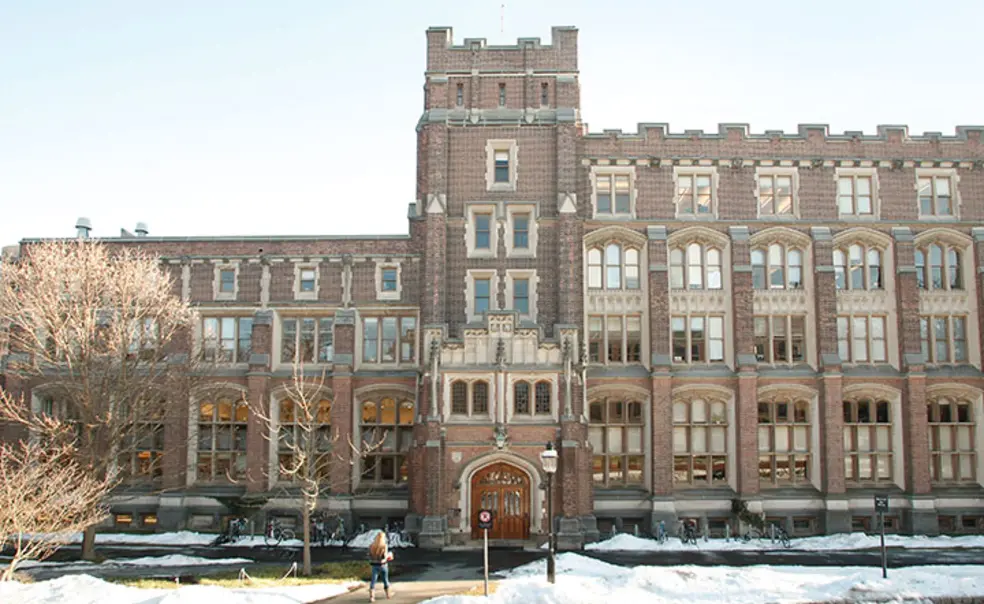Emerging Trends
Task forces offer detailed blueprints for natural sciences, online learning
In this issue, PAW continues coverage of the reports of task forces studying more than a dozen aspects of teaching, research, campus life, and alumni affairs. Their findings are part of the planning process that created a strategic framework for Princeton (story, page 12).
Natural Sciences
Solutions to some of society’s most urgent problems, this task force said, will require “the rapid emergence of a new field of study of complex natural ecosystems within the biosphere.” Growing numbers of students are receiving a certificate in environmental studies and are focusing on related fields of study, the group said.
The task force called for construction of a building to house two departments focused on the study of the environment — geosciences, and ecology and evolutionary biology — as well as a new environmental institute with a “broadly conceived integrative mission.” The departments are in buildings more than 90 years old.
Among the other recommendations:
- Invest in equipment needed for an area of molecular imaging called cryo-EM, in which images are studied at cryogenic temperatures, and recruit faculty with expertise in the field. Create a center to coordinate imaging facilities scattered across campus.
- Continue to support computational research in the sciences. The report noted that “scientific leadership and innovation will increasingly depend on data-intensive and simulation-driven analysis and predictions.”
- Launch a five- to 10-year “gravity initiative” at a time when “the field of general relativity is subject to new activity and novel developments.” Scholars in mathematics, physics, and astronomy would work together on the project.
- Expand the research-based international experiences available to Princeton’s undergraduate and graduate students in the natural sciences.
- Achieve more diversity among graduate students, postdocs, and faculty, including the creation of a “Princeton Natural Science Scholars” program that would offer female and minority postdoctoral students a three- to four-year residency, independent research funding, and close interactions with faculty.
- Provide financial assistance for grad students who are completing their theses as a way to reduce the dependence on uncertain federal funding.
Online Education
In April 2012 Princeton joined with Stanford, Penn, and the University of Michigan to launch Coursera, now the largest provider of Massive Open Online Courses (MOOCs). In its review of online learning, the University’s Faculty Council on Teaching and Learning said that it had found “pervasive uncertainty about its effectiveness.”
Princeton faculty members have taught 22 MOOCs, the group said, and have experimented with techniques such as “flipping the lecture” — recording lectures for students to view in advance of class, and using the freed-up time for discussion and problem-solving — in 14 University courses.
Among those at Princeton who have participated in “flipped” classes, some instructors said they are labor-intensive and demand continued experimentation. Students were split almost evenly, the report said, with some saying that classroom sessions were “unfocused.”
Recommendations include:
- Princeton’s “signature initiative” in online education should be to develop materials that encourage students to enter the STEM (science, technology, engineering, and math) fields.
- Create small online courses that students could take during the summer. The report noted that in the past three years, nearly 22 percent of Princeton students obtained degree credits from summer courses at other schools.
- Increase support for experimentation in online education and provide incentives to faculty to create materials that make curricula “more accessible to our increasingly diverse student body.”
- Consider partnering with other universities on large quantitative courses and languages that are taught less commonly.
- Provide teaching and technical support only for online projects “that have clear potential to enhance teaching and learning at Princeton.”












No responses yet